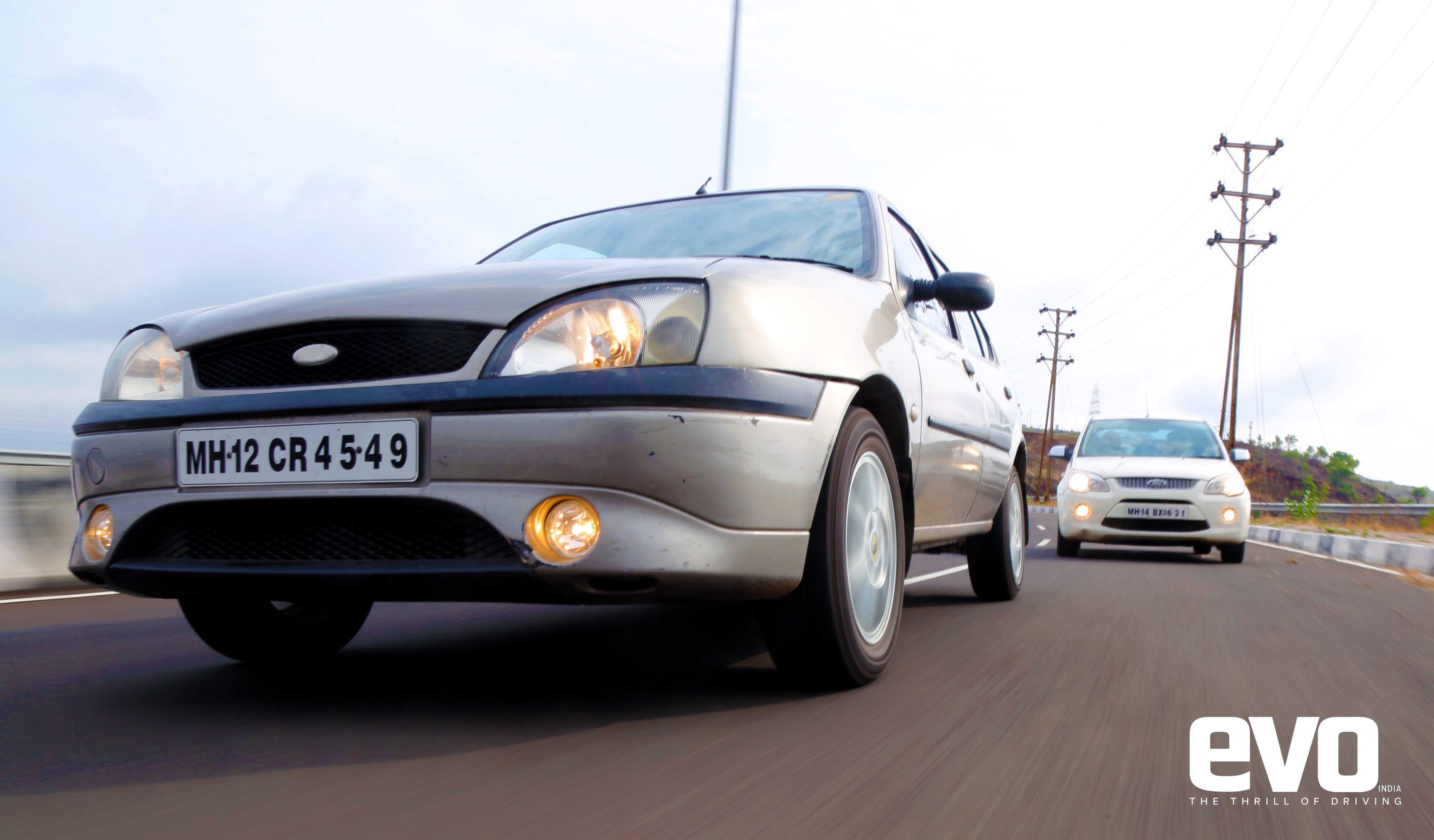Drivers’ cars on a budget, part two: Ford Ikon 1.6 & Fiesta 1.6
The Ford Ikon 1.6 is all about raw fun whereas the Fiesta 1.6 is mature, composed and yet daring. If you're chasing driving thrills on a budget, these two are truly capable offerings.
 The Ford Ikon 1.6 is all about raw fun whereas the Fiesta 1.6 is mature, composed and yet daring. If you're chasing driving thrills on a budget, these two are truly capable offerings.
The Ford Ikon 1.6 is all about raw fun whereas the Fiesta 1.6 is mature, composed and yet daring. If you're chasing driving thrills on a budget, these two are truly capable offerings.In the second part of this series, the spotlight is on two Ford cars that were overshadowed by the Honda City and its VTEC technology. We were Honda fanboys, the letters V-T-E-C caused accidents in our pants, we refused to believe the Ikon could deliver anything close to the thrills of the Honda. We were so stubborn, even having Narain Karthikeyan as a brand ambassador did little to sway us. Nonetheless we decided to put our hands on not only the Ikon but also the adult in the kids party, the Fiesta!
Rolling fun, the Ford Ikon 1.6
Today the Honda City VTEC is a cult car while nobody remembers the Ford Ikon 1.6 – and that means easy tidings for the discerning enthusiast. You can get the SXi, with the sporty bumper that you see here, for less dough than the Swift. And truth be told there is more josh to be had. The 8-valve, single-cam 1.6-litre motor revs as eagerly, as enthusiastically, as a Japanese unit. The gearbox, with short throws and slick operation, is more precise and direct than the Jap ’boxes. The induction roar is throaty, the chassis light, and the handling mighty entertaining. It’s hilarious. I’d forgotten what body roll felt like – and the Ford Ikon delivers that in dollops. There is a lot of understeer and there’s a lot of squealing from the tyres. Compared to the cars we are used to these days, you’re not carrying much speed through corners but, rather counter-intuitively, you’re also having a whale of a time. The steering wheel is this sporty small-dia unit that feels so connected to the front wheels and there is this overriding sense of raw excitement that is all but filtered out in modern cars.
But, and there is a but, the cabin feels ancient. Dreary. The green backlighting for the white-faced clocks is turn-of-the-century kitsch. The ROCAM is long gone so parts aren’t off the shelf. It all feels ancient, and the Ikon hasn’t aged well.
Such a great handler, the Ford Fiesta 1.6
In contrast, the Fiesta that replaced the Ikon feels considerably more grown up. In came the twin-cam Duratec (that is only now being phased out with the Dragon) and the 100bhp mark was breached. There’s a sophistication to the chassis that feels almost two generations ahead of the Ikon. The handling, something that Ford have always prided themselves on, is even better. There is less body roll, less understeer and more cornering Gs. There is less drama and a greater sense of safety and security. And it got motorsport tuners all excited. Both JK and MRF built rally versions using parts from M-Sport Fiestas in the UK but they just couldn’t get it to run reliably enough to mount a championship challenge. The Fiesta fared a little better in racing but tuners soon went back to their light-weight Esteems when support from the factory dried up. However the Duratec engines, suitably tweaked, continue to power the MRF F1600 single-seaters and though the stickers are gone (the sponsorship deal is over) the Blue Oval continues to be connected with Indian motorsport.
Diesel hatch comparo: Swift vs Figo S vs Polo GT TDI
Towards the end of its life, the Fiesta S was added to the lineup to add some excitement to sluggish sales, tweaked dampers and better tyres doing genuine justice to the sporty positioning. It worked (on the track, not on sales charts). I remember when we pitted it against the Honda City ZX at the racetrack, the Fiesta S posted a quicker lap time despite being down on horsepower and slower to the 100kmph sprint. The Fiesta was all about handling, and even against today’s benchmarks it can hold its head up high. Where the Ikon is raw, unadulterated, unfiltered fun, the Fiesta is more mature. With a bagful of josh.
Find out who else is there in our line-up of drivers’ cars on a budget


